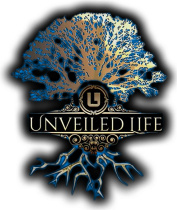Part X – Authority and the Two Kingdoms
Since the rise of the shepherding movement in the 1970’s the church has been uniquely aware of spiritual authority. The Shepherds looked over to the Jesus Movement, saw the born again hippies and their anti-authority view of the world, and realized that something was wrong with the picture. The answer was to teach people that you could not be submitted to Jesus if you were not submitted to man. What formed around this teaching then was a hierarchy with members submitted to cell group leaders who were submitted to pastors, who were submitted to one of the shepherds, who were in theory submitted to each other. What no one really expected is the ungodly results such a system would produce. Rather than lead people into a healthy respect for and use of authority, it led to a strange web of abuse, which those who played the role of abusers in the system will deny to this day.
What is interesting is that if you look, you’ll find that all demonic systems are set up in just the same way — hierarchies of submission, leading up to one person with all of the power. Each person on the level below owes his position to the person above and is therefore beholden to him. Now in a corporation this kind of hierarchy seems to work at least reasonably well, but in church or government it seems to consistently lead to something unhealthy. Why is that? Because in a corporation people voluntarily submit. If you don’t like things, you can leave. On the other hand, if you don’t submit to an authoritarian government you will be shot, and if you don’t submit to an authority in an authoritarian church, even worse, you’ll lose your salvation. When people involuntarily submit to something because they feel they have no other choice, the person over them has absolute power. This is in fact the structure of the devil’s Kingdom — a hierarchy of fear. Individual impulses are crushed by obedience to the “system.”
The shepherds had observed that the basis of the devil’s kingdom was rebellion. This is true and of course it made even more sense at the time, when they were watching the greatest cultural rebellion in American history and its attempt to overthrow everything that was decent about our country. What perhaps they failed to recognize was that if the rebellion had won, a new totalitarian system would have been set up. The devil’s kingdom may be made up of rebels, but he only allows them to express it in reference to God and Godly authority. In his kingdom, absolute obedience is demanded and individuality is punished.
God’s Kingdom, inaugurated in the New Testament, is not this way. As God and King, Jesus wants to and has the ability to be in direct contact with all of his subjects. Not through an endless hierarchy, but directly. He comes to live in each one of us and rule over our consciences. This means that people have internal government. The more internal government people have, the less is external government is needed. Sin is in the heart, so no external authority can remove it, all it can do is make it hide in fear. The presence of such fear prevents the grace of God from working. The gospel is based on human choice to voluntarily submit to Jesus and everything good. Does this mean that anyone can just do anything they want in the church? No. The devil will always use chaos to bring in discord, then rebellion, then his autocratic kingdom of fear.
Since the shepherding movement it has been popular to say that “God’s Kingdom is not a democracy, it’s a monarchy.” The inference is that because we have a King, we should have a top down hierarchy. Like worldly kings, Jesus does designate subordinates to carry out his will and lead his people, but because of internal government, they function quite differently. The authorities in the church are put in place to keep the devil out and the Holy Spirit in. Whenever forcible submission or rebellion appear, Jesus’ government is diminished, because the instrument of his authority is the voluntary submission of His subjects.
The leaders in his church are compared to shepherds because it is their job to protect and feed Jesus’ sheep from wolves. They also lead them to water and herd them, but if Jesus wanted an analogy of a submissive hierarchy, he would not have chosen a shepherd (pastor) as his description of this leadership. We are a flock of individuals that Jesus and his shepherds care about by name.

Sorry, the comment form is closed at this time.